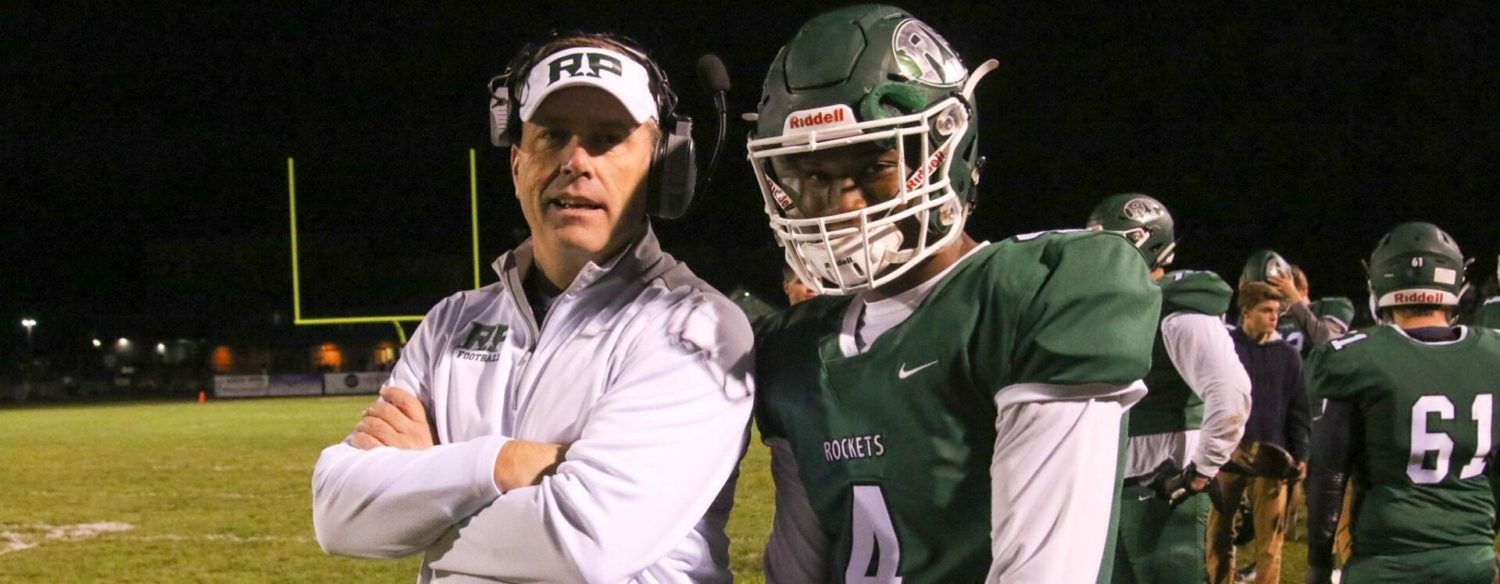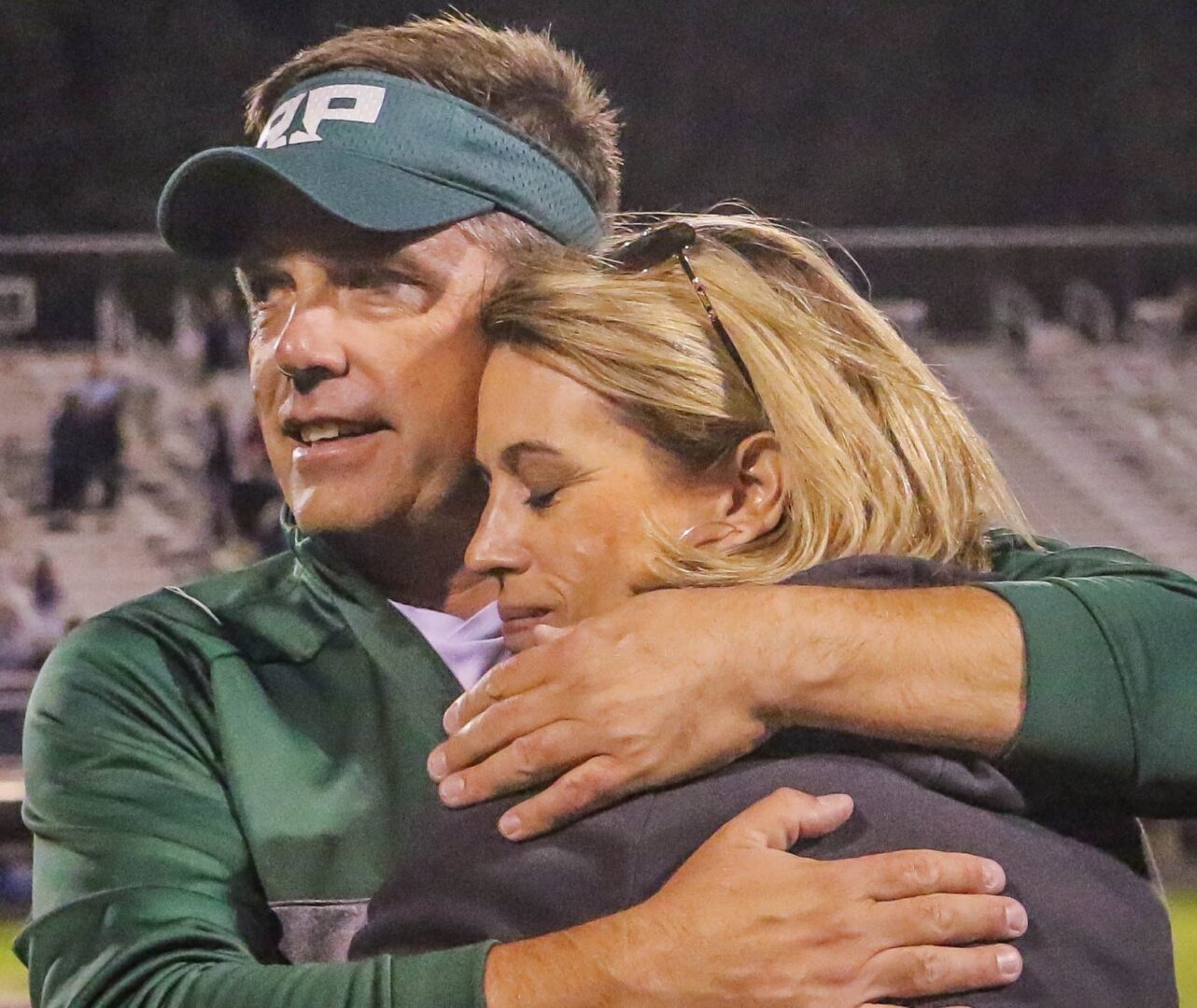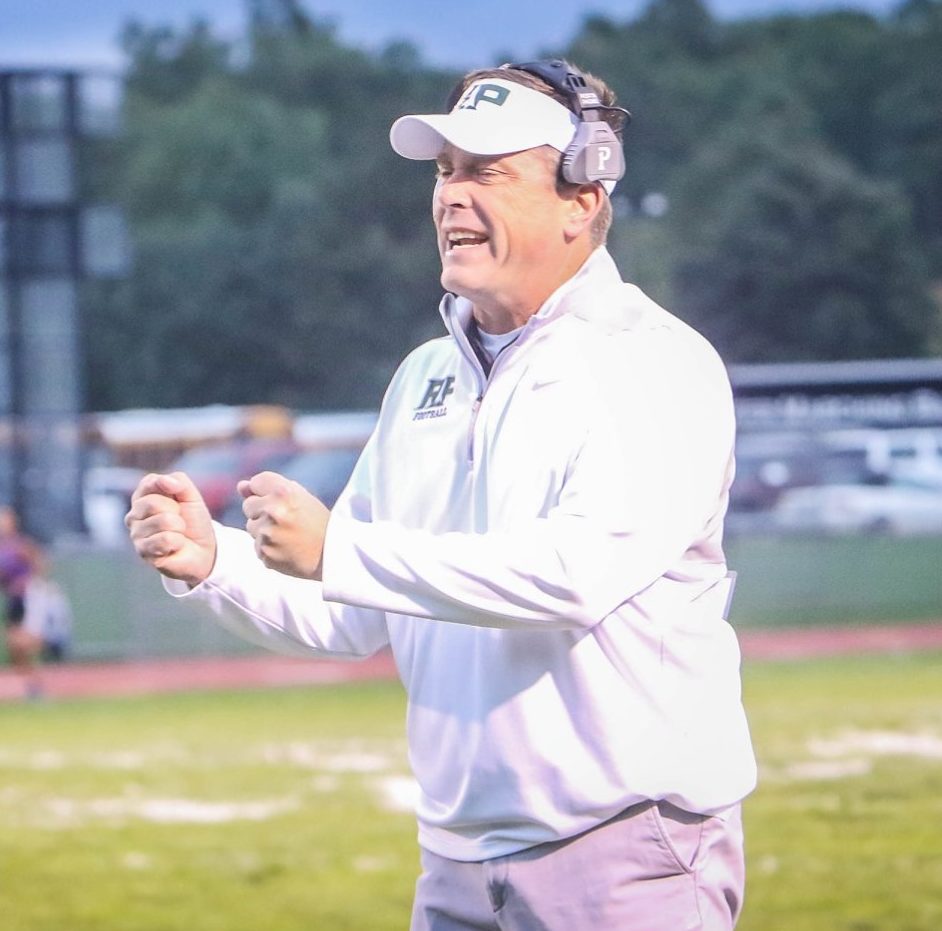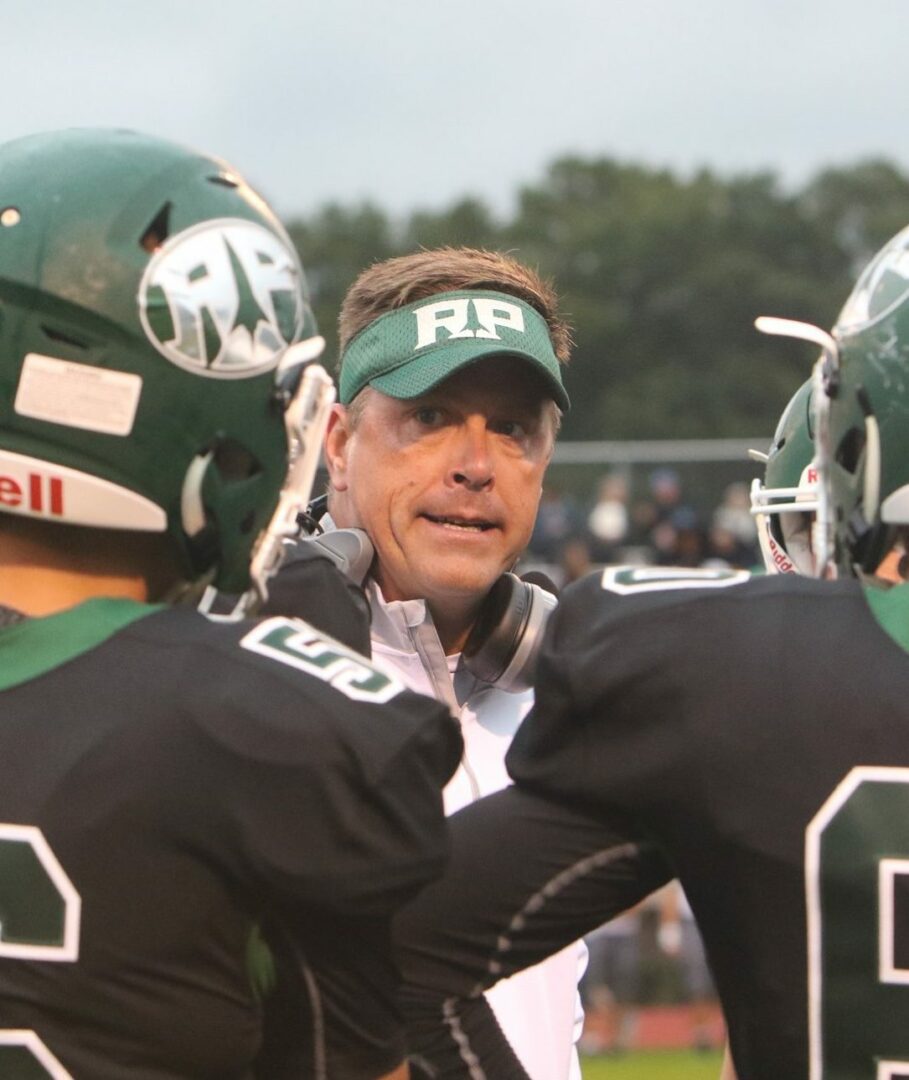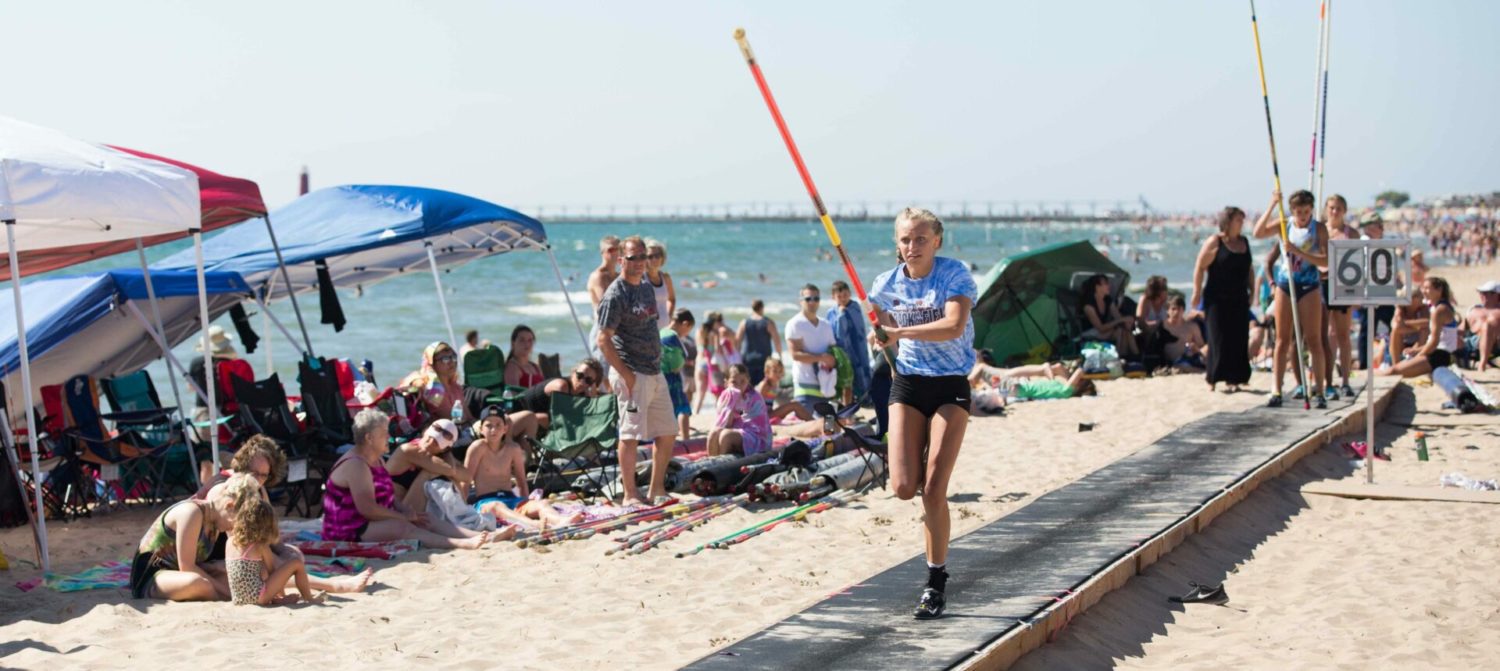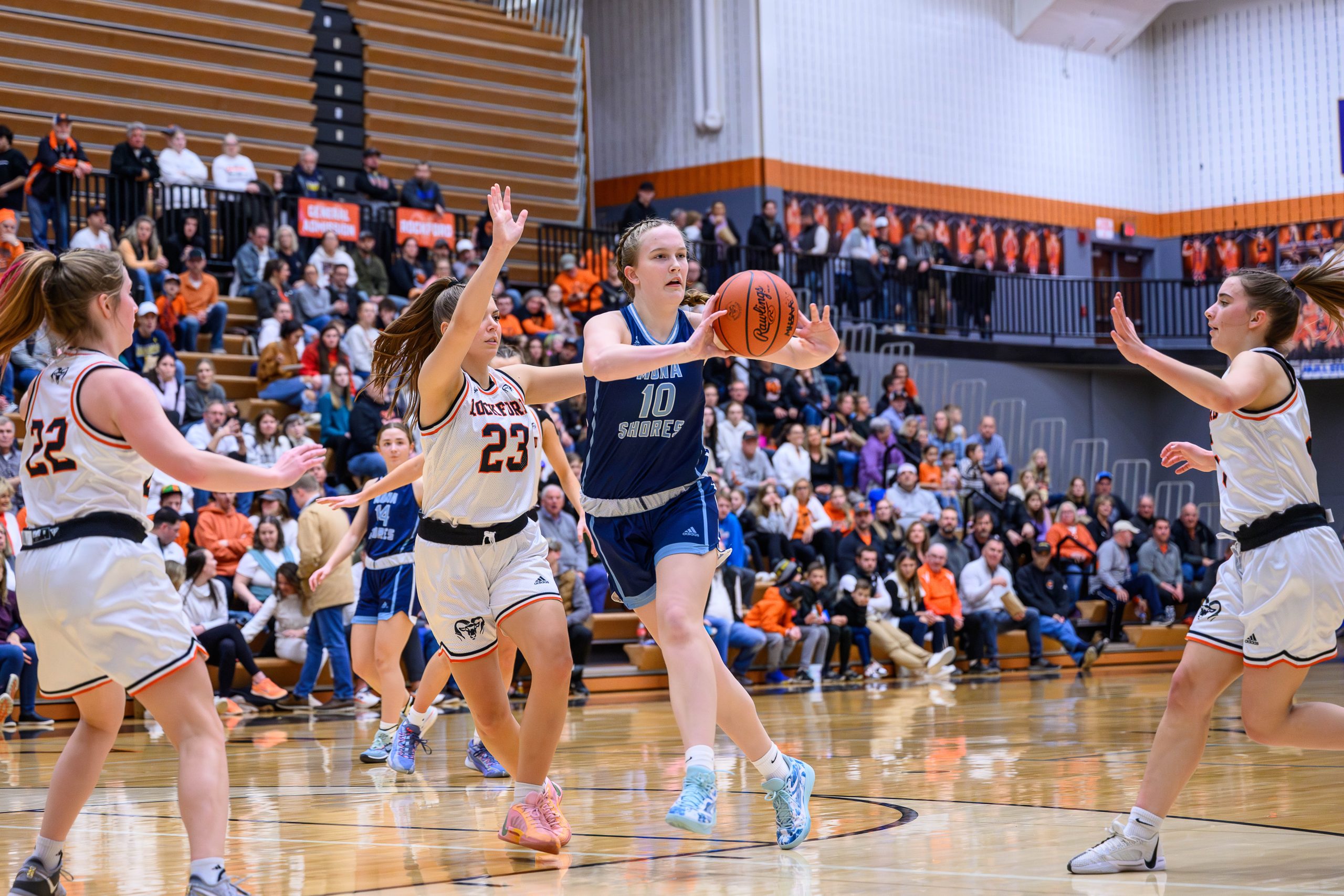By Steve Gunn
LocalSportsJournal.com
MUSKEGON TOWNSHIP – Matt Bird, like all football coaches, is certainly hoping there will be a season this fall.
 But after what he’s been through, Bird can’t help but feel a new sense of hope and optimism, whether football is back on time or not.
But after what he’s been through, Bird can’t help but feel a new sense of hope and optimism, whether football is back on time or not.
Bird, who completed his first season as varsity football coach at Reeths-Puffer High School last fall, just came through a nightmarish month of battling a stubborn and frightening case of COVID-19 infection.
Two different times he felt better, and thought he was out of the woods, and each time the symptoms roared back again, often leaving him fighting for breath and completely exhausted.
He had to watch and worry when his wife started showing symptoms a few days after he did, and he constantly feared that his three children, all at home during the shelter-in-place period, would come down with it.
Luckily Jamie Bird never experienced the same type of severe symptoms that her husband did, and got better much sooner. Their children never showed any signs of contracting the virus.
Coach Bird is finally feeling better, too, but that only came after weeks of illness, worry and frustration.
“It has been a journey,” he said. “I learned a lot about this stinking virus.”
Getting sick just as everything shut down
In mid-March, when most people were just becoming aware of COVID-19 as the world shut down, Bird was coming down with the infection.
“I think it was March 13 that we shut down the school, I felt great through the weekend, we went to a friend’s house for dinner on Friday night, and it was all good,” said Bird, 45. “On Monday I went to the office and did some work, then on Monday night I just felt this tightness in my chest, and exhaustion that was not normal. I told my wife I was going to lay down, that I didn’t feel good.
“On Tuesday I was out of bed for about an hour, and that was it. I had tightness in my chest, joint pain in my knees and hips, a headache, and a very odd dry cough. I called the hotline, and at that point they did not have enough tests in the state. They said to treat it as a COVID situation, but they couldn’t test me. They said to come to the ER if I was having trouble breathing.”
A week passed, and Bird started to feel better – but then the symptoms returned, and they were worse the second time around.
“I said, OK, I’m going to whip this thing, then Monday or Tuesday of the following week it came back with a vengeance,” he said. “I called the hotline again, and they said the same thing, that they were not testing. They said first responders, medical professionals and people who work in prisons were all they were testing at that point. At that time they were saying that in 7-14 days it should pass.”
Around the first of April, Jamie Bird started recovering, and Bird was feeling better once again. But then the shortness of breath came, which he said was the scariest part of the experience.
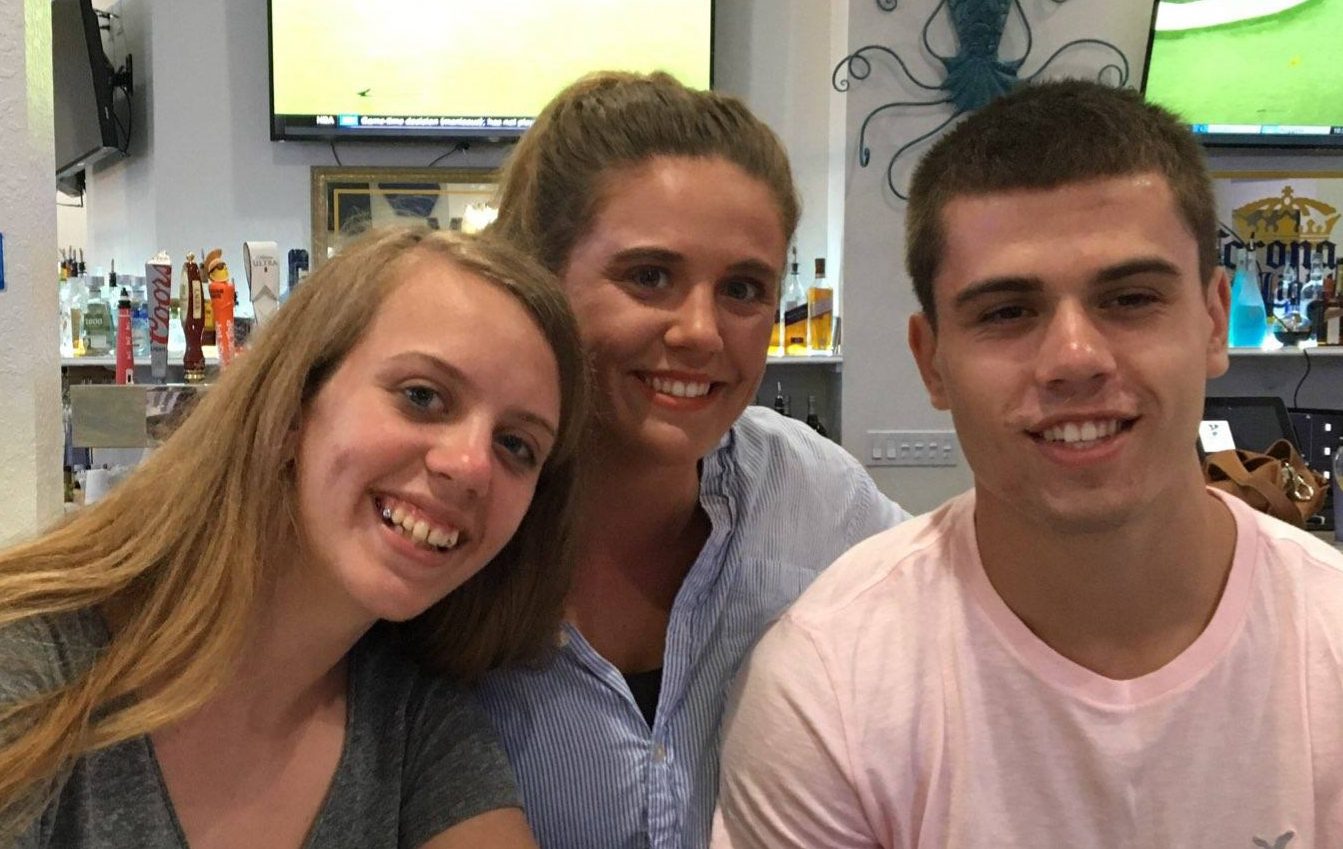
Bird family members Delaney, Briana and Nolan, who were all home with their dad as he struggled with COIVD-19.
“The doctors were saying the key was going 72 hours symptom free, and I was just about at the 72-hour mark and I started coughing,” Bird said. “My son actually came into the room and asked me if I was all right. I remember saying that it felt like I had a piece of popcorn stuck in my throat. It was awful. I was struggling to breathe.
“I called the hotline a third time, and they gave me a choice between Ludington and Grand Rapids to be tested. I went to Grand Rapids and did the drive-by. They have you roll down your window and do the test.”
Bird said the drive-through testing experience was surreal.
“Picture a line at McDonald’s backed up,” he said. “You pull up to the first tent, and you call a number to check in. They have four big tents set up, and they said I had to go to tent 4.
“You keep your windows rolled up until you get under the tent, then you roll your window down and they go through your nostril with a long Q-tip. It’s not comfortable. The feeling forces you to cough, and you don’t want to cough on people.
“I was waiting for results, then the following Monday I got real sick, and Tuesday I couldn’t breathe very well. I was really struggling. I finally got the results back from that first test, and it was crazy, they said it came back negative, but the doctor told me that 30 percent of tests come back false negative. They said since I got it in March, I was not contagious, and I was just having leftover symptoms and they should pass.”
They didn’t pass, and last week Bird was finally sent to the emergency room at Spectrum Hospital in Grand Rapids, where they put him on lung medication and an inhaler. He was very nearly admitted to the hospital, but was lucky enough to be sent home.
“They were going to admit me, but she told me at the end that it was probably better to go home,” he said. “The emergency room was busy. In the portion of the ER I was in, you could tell that everyone had symptoms. The doctors said the intensive care unit was full, and I didn’t need ICU anyway.”
The medication that was prescribed made a huge difference, and Bird finally believes that he’s made it past COVID-19.
“My body has responded to the albuterol, and I feel really good today,” Bird said on Tuesday. “This past weekend was a good weekend.”
A dark time, with some silver linings
Bird said the entire experience was fascinating and frightening, at the same time. He said the strange symptoms of the disease made the situation more than a little macabre.
“You find yourself searching for words at times,” he said. “Confusion is a side effect of this, because it messes with your body’s ability to take in oxygen.
“One doctor described it perfectly. She said it was a dark virus – it messes with you mentally and physically. And some people are in and out of it, no problem, while others are sick for a month, and they can’t figure out why.
“The scariest is when you can’t breathe. You never feel like you’re getting enough. Your lungs just don’t work right. It’s a weird feeling. My doctors told me to lay on my chest when I couldn’t catch my breath. In Italy they were having some success with that, and I will be darned if it didn’t work for me. But there was exhaustion like you never felt before. It was hard to move.
“My wife would shake me a few times at night if I got too quiet or something. It’s probably the only time in history that she’s enjoyed my snoring!”
Bird also experienced the helpless feeling of dealing with doctors who were doing their best, but didn’t have many answers.
“It was the first time I have ever dealt with physicians who said they really didn’t know, because it’s so new, and that was really eye-opening,” he said.
Bird said there were also positive things that came out of the experience, like communicating online with friends, students, colleagues and other well-wishers.
“I did as much work through zoom meetings as I could, talked with students, touched base with family, and tried to put people’s minds at ease,” he said. “It was nice to engage with people.”
Bird has also been happy to spend a lot of quality time with his family, with everybody under one roof.
In normal times those opportunities are rare. Bird’s oldest daughter, Briana, is done with college, teaching at Reeths-Puffer and lives on her own. His son Nolan is a student-athlete at Hope College. Only his daughter Delaney, who will be a sophomore at Reeths-Puffer in the fall, still lives at home on a full-time basis.
“We had some good conversations with our kids that we probably never would have had, talking about life from a different perspective,” Bird said. “We ate dinner as a family at the table a lot more. We had a different type of connection. It definitely had a big impact on our family.
“I don’t mean to sound cliché, but it makes you think about priorities. You connect with people because they mean something to you, and you tell them you love them a lot more.”
Better days ahead, with or without football
Normally at this time of year, Bird would be getting ready for summer camps and workouts, to prepare for the start of the high school football season in late August.
He’s definitely eager to get going with season number two with the Rockets, after finishing 5-4 last fall and missing the state playoffs by one victory.
Bird is certainly used to winning. Before coming to R-P, he spent 13 seasons as head coach at Grand Ledge High School in the Lansing area, where he had an overall 88-43 record, made the playoffs nine times, and took his team to the state semifinals in 2015.
But Bird – like everyone else – can only guess if the season will happen, and if so when it might begin.
“I’ve been hearing all sorts of things,” he said. “The big date seems to be July 1, after the state starts to open up, and we go through June and see how the responses are. There’s a lot of speculation about what the school schedule is going to look like. The biggest thing is getting through the next few weeks, and hopefully July 1 is a good day.
“We need something. Think of what a positive effect a football season could have for the community and families. So many people in the area have been financially crushed. I know it’s hurt the Reeths-Puffer community.”
Of course the immediate future of high school football is out of Bird’s hands, and he’s OK with that. He’s just very happy to be alive and past his health scare, with his family safe and nearby.
“I’ll tell you what, I am blessed to be in the situation I’m in,” he said. “The reaction of the community at Reeths-Puffer helped get me through this. A lot of people were checking in, and a Iot of them ended the conversation with ‘Hey I love you.’ When you hear that L word enough, you are going to keep fighting.
“It was one of those speed bumps in the journey. Now that I’m through it, if it does hit the community hard, I know I can be in the thick of things and help out wherever I can. Hopefully that won’t be needed.”





